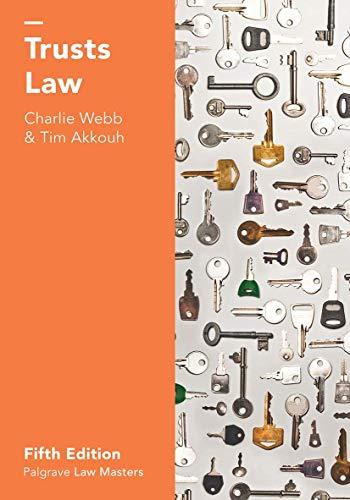Question
Everything from trade secrets to copyrights to patents - is a valuable asset to the creator or owner of that property. Federal law provides statutory
Everything from trade secrets to copyrights to patents - is a valuable asset to the creator or owner of that property. Federal law provides statutory protection for many forms of intellectual property, including both criminal penalties and civil rights of action against violators of another's rights. State laws, such as the Uniform Trade Secrets Act, provide civil protection and rights to sue for theft, misappropriation and misuse of those rights. Many such violations could also be prosecuted under state larceny statutes. This assignment asks you to address two questions:
1. Given that the statutes largely leave enforcement of intellectual property rights to the civil courts, consider what role does, or should, the criminal law play in protecting those rights.
2. As noted in the lesson, the Connecticut statutes impose a duty on the police to investigate complaints of identity theft. Should the police have a similar obligation with respect to intellectual property rights and/or any obligation to provide information or assistance to the victims of intellectual property misuse or theft?
- Discuss those two questions and the role state and local police and the state criminal justice system have in enforcing intellectual property rights belonging to the State's citizens and whether the State has an obligation to assist the victims of theft or other misuse of their property rights.
Step by Step Solution
There are 3 Steps involved in it
Step: 1

Get Instant Access to Expert-Tailored Solutions
See step-by-step solutions with expert insights and AI powered tools for academic success
Step: 2

Step: 3

Ace Your Homework with AI
Get the answers you need in no time with our AI-driven, step-by-step assistance
Get Started


